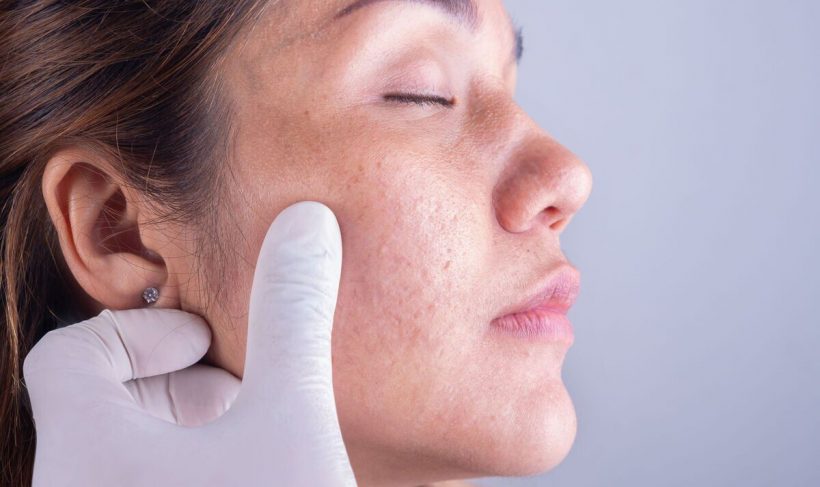Gut health: Dr Chris George on how to improve microbiome
We use your sign-up to provide content in ways you’ve consented to and to improve our understanding of you. This may include adverts from us and 3rd parties based on our understanding. You can unsubscribe at any time. More info
The gut is often dubbed the second brain because of its innate ability to affect everything from heart health to weight maintenance. Inside the gut are millions of bacteria that are highly sensitive to environmental factors like stress, lack of sleep and diet. Any imbalances in the microbiome can have life-long consequences in the form of autoimmune conditions.
Broadly speaking, poor gut health will show up as digestive issues or other non-specific symptoms like fatigue and brain fog.
It can also manifest as hormonal and inflammatory conditions that wreak havoc on the skin, however.
The appearance of a person’s skin is very telling about their health, as it is often among the first organs to reflect inflammation.
Sas Parsad, from the Gut Company, explained: “The digestive tract is lined with trillions of bacteria that ferment the food we consume, creating proteins and molecules that control many processes in the body, including the functions of the skin.

“These functions include skin turnover, what is detoxified through the skin, inflammatory skin mediators and more.”
According to the expert, if the gut microbiome is in a bad state, it can affect these processes and show up on the face.
Many of these issues arise as a result of collateral damage to the skin’s protective anti-microbial barrier.
Doctor Chun Tang, from Pall Mall commented: “Spots, dry skin, psoriasis, inflammation and other skin conditions could be a consequence of poor gut health.”
The expert continued: “The bacterium in your intestines has a huge influence on your overall health, especially the skin.
“Poor gut health can lead to a ‘leaky gut syndrome’ – a condition where partially digested food escapes the gut into the bloodstream, leading to inflammation which manifests on the skin.
“It’s always best to see your GP if you have any concerns about your gut health or any developing skin condition.”

What are the risks attached to poor gut health?
In 2017, a review published in the journal BMC Immunology demonstrated the effects of dysbiosis and its link with autoimmune diseases.
Dysbiosis, which describes an imbalance between the good and bad bacteria in the gut – has been linked to several autoimmune conditions.
It is associated with decreased bacterial fiction and diversity, impaired gut barrier function and increased inflammation.

This has been identified as a possible trigger factor for autoimmunity and the development of rheumatoid arthritis.
Crohn’s disease, lupus and multiple sclerosis may also result from the body mistakenly attacking itself as a result of poor gut health.
Maintaining a balanced microbiome that has diverse bacteria can help prevent these complications, fortunately.
Reducing the amount of processed, high-sugar, and high-fat foods you eat could lead to better gut health.
Source: Read Full Article
